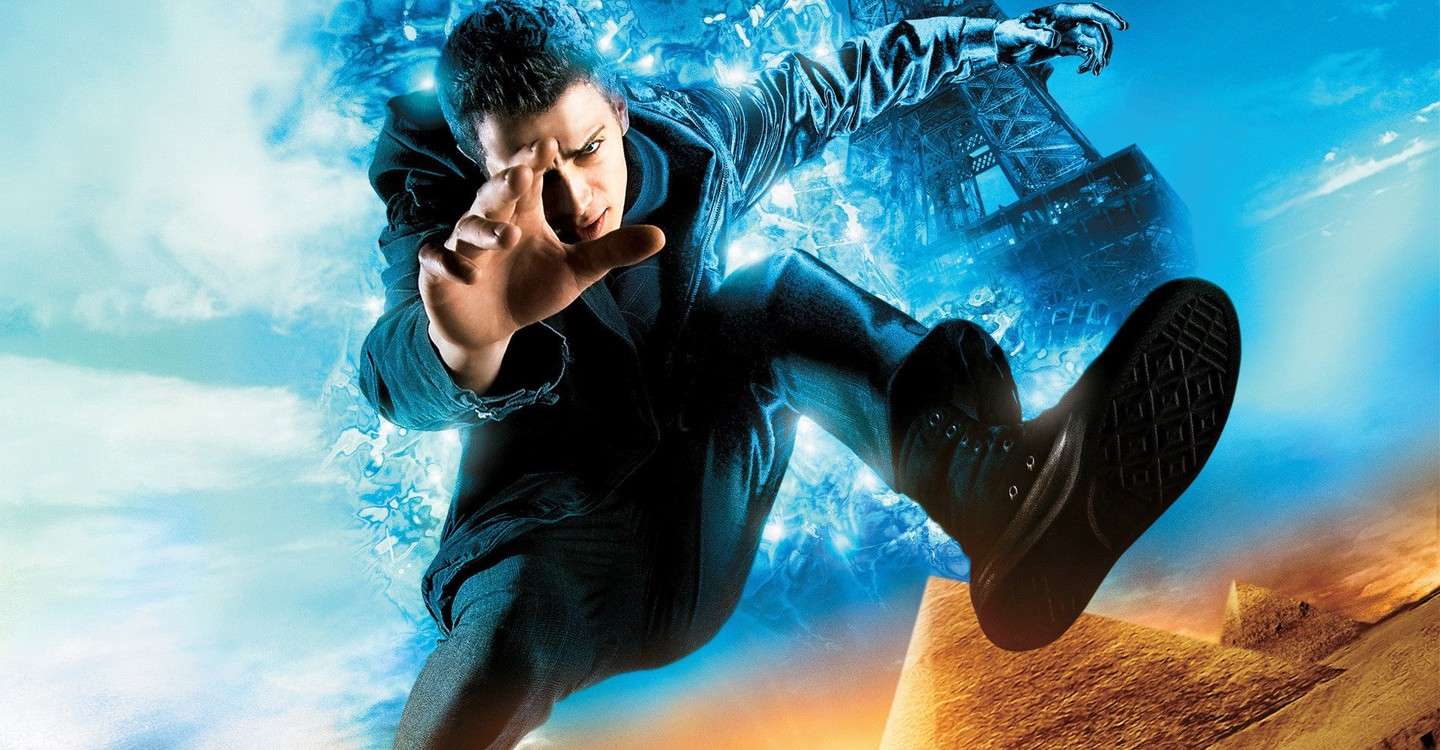Create a free profile to get unlimited access to exclusive videos, sweepstakes, and more!
This Week in Genre History: 'Jumper' tried to leap ahead to the sequels before sticking its first landing

Welcome to This Week in Genre History, where Tim Grierson and Will Leitch, the hosts of the Grierson & Leitch podcast, take turns looking back at the world's greatest, craziest, most infamous genre movies on the week that they were first released.
Do you remember that Jon Hamm was in the A-Team movie? He only appeared in a post-credits stinger supposedly setting up a series of sequels that, well, never happened. The Green Lantern movie rushed a character's transformation into the superhero's greatest villain because Mark Strong's Sinestro was clearly meant to be the baddie in Green Lantern 2, which was never made. Heck, Pride and Prejudice and Zombies ends with a teaser for the next film. (There was no next film.)
But those are the perils of using your film to set up a franchise without any certainty that there will, in fact, be anyone that wants it. Sometimes, when you are trying to plan on several films at once, you forget to concentrate on the one you're making. People will not want two of your films if they don't like the first one.
Enter Jumper. Jumper was a film that had everything going for it. It had a star director (Doug Liman, fresh off the smash Mr. and Mrs. Smith), a hot movie star (Hayden Christensen, not quite yet fully meme'd), and a beloved science-fiction novel with a killer hook that fans had been clamoring to be made into a movie for nearly two decades. Heck, that novel already had its own sequel! This thing was ready-made to be a franchise.
Needless to say, there was no Jumper 2. And the problem was simply Jumper itself.
Why was it a big deal at the time? Liman might have been the hottest filmmaker going in 2008, when he made Jumper: He had just finished Mr. and Mrs. Smith, and the Bourne series, which he started, had reimagined the action movie genre. He could have done just about anything he wanted, and he wanted Jumper. He'd been working on it for a few years, but now he had the juice to do it the right way: He had such a budget that the film was set to film in 20 different cities in 14 different countries.
It sort of had to be that big: The story was about a guy who could teleport anywhere! (Liman even got access to the Colosseum in Rome.) The visual effects of our hero David "jumping" from place to place were state-of-the-art and downright trippy. And the bad guy was Samuel L. Jackson! It even had a video game tie-in.
And don't forget the books themselves. Steven Gould's initial novel Jumper was published in 1992 and was an immediate hit, leading to a series of equally successful (you guessed it) sequels, including Reflex in 2004, which was to be part of the next movie series.
How could this thing possibly miss? Look out for those sequels. A producer said before release: "The ideas got so large, that they really couldn't fit into, you know, one or two movies, they needed to evolve over at least three movies. So we planned the story out over three movies and then we sliced it up in such a way as to leave room for the other two movies."
What was the impact? Hoo boy. One thing Liman hadn't accounted for was that by the time the movie actually came out, Hayden Christensen was less a "movie star" after his time in the Star Wars universe and more "a guy everyone was ready to start dumping on." The knives were out for him, and his film, from the get-go. It also didn't help that Christensen was wearing some sort of trench coat on the poster, which made Jumper look less adventurous and visionary than it like some sort of low-budget, gas-station knockoff of The Matrix.
The movie had been plagued by troubles on set, and you could tell: Liman's movies are usually tight and focused, but this one has a non-sensical plot and characters that seem to vanish and reappear at random. (But not in, like, a cool "jumper" way.) It also doesn't help that Christensen and Max Theriot, the actor who plays the younger version of his character, look... essentially the same age. Audiences were confused, and critics howled. The box office wasn't quite as horrible as the critics' reaction might have predicted — it was No. 1 the first weekend and was actually a huge hit in South Korea — but it didn't make enough to earn that sequel. It didn't come close.
Has it held up? Christensen is always going to take the biggest hit for the then-panned George Lucas Star Wars prequels, but he's not incapable of a good performance: He's terrific in Billy Ray's Shattered Glass, for one. But he's completely lost here, and Liman gives him little help in that regard. The performance, like the movie, is almost entirely blank. It's as if Liman and his producers were so careful about making sure they had enough material for the sequels that they forgot to put much of anything in this movie. Jumper ends up playing like a blank stare.
Liman did not give up, however. It's not like Jumper ended his career after all; Edge of Tomorrow in 2014 might be his best movie to date, and one that reinvigorated his juice in the industry. Thus, a decade later, frustrated with the series he never quite got right, he returned to the world of Jumper with Impulse, a YouTube original based on a 2013 sequel book by Gould that turned in a different direction entirely. It was as if he wanted to fix the mistake he made the first time. "It's no secret that, of all my films, Jumper's the one that I harbor some creative regrets, feel like I could have done better," Liman said when Impulse was released. "That's something that's hung over me. It dawned on me that rather than live with that regret, why not actually just go and try to do better?"
Impulse is better than Jumper. But not that much better and, more to the point, not enough better: YouTube canceled it in March 2020. One assumes Liman is done with this world now. He tried for sequels, twice, and ended up with basically nothing at all.
Will Leitch is the co-host of The Grierson & Leitch Podcast, where he and Tim Grierson review films old and new. Follow them on Twitter or visit their site.














